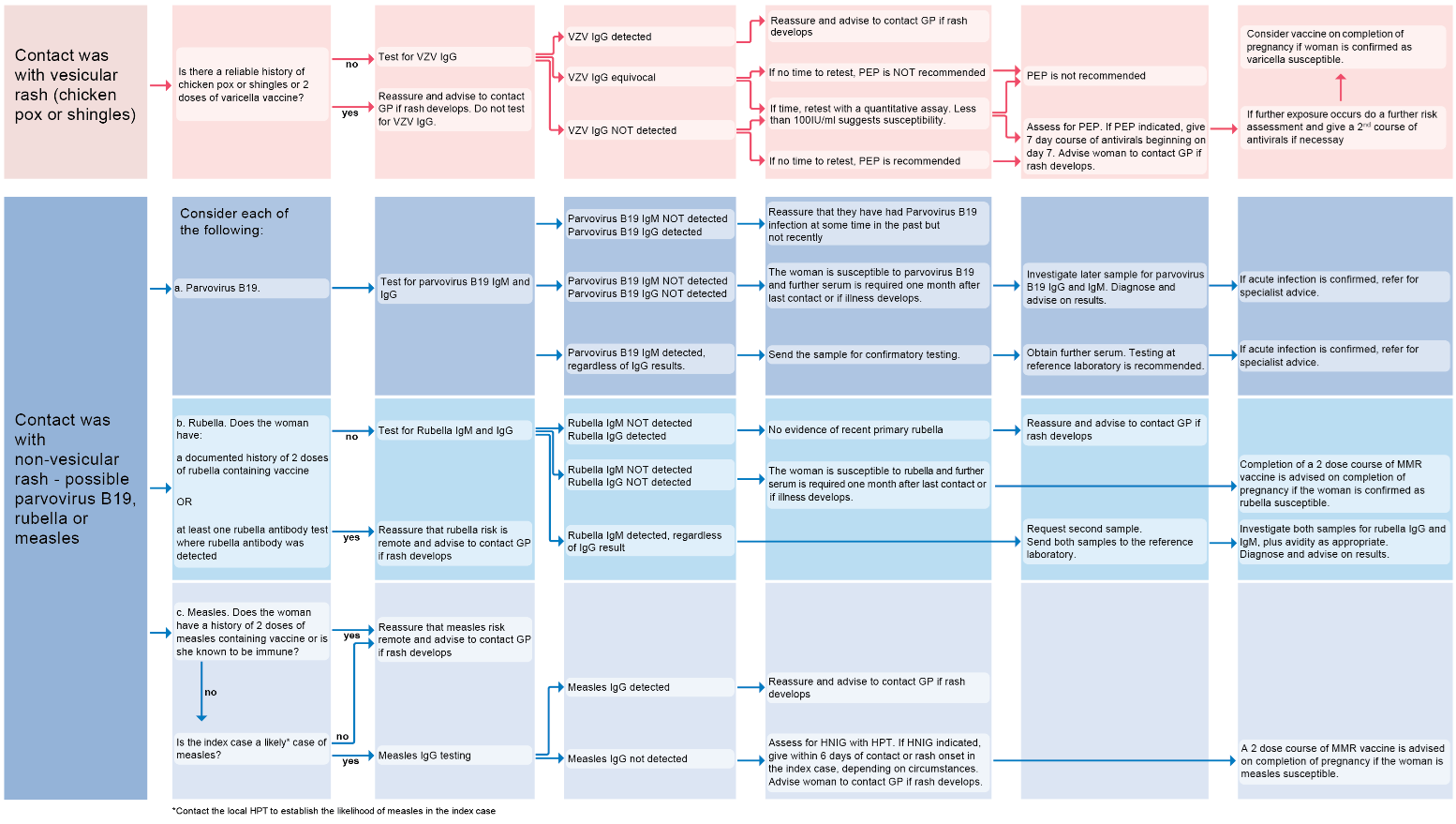Rubella (in pregnancy)
Rubella a mild illness caused by infection with rubivirus, an RNA togavirus. Spread of the virus is by droplets from the respiratory tract. However rubella infection during pregnancy is potentially teratogenic (see congenital rubella syndrome for details), with the risk of fetal infection greatest if maternal infection occurs during the first trimester:
- fetal damage occurs in up to 90% in cases of maternal rubella infection in the first 8-10 weeks (1)
- risk of fetal damage declines to about 10-20% by 16 weeks (1)
- fetal damage as a result of maternal rubella infection is rare after 16 weeks gestation
Other points to note concerning maternal exposure to rubella during pregnancy include:
- vaccination is contraindicated during pregnancy; the value of gammaglobulin (passive immunisation) is disputed
- immunity to rubella is not always lifelong and therefore immunity should be checked at booking
- if rubella infection is suspected during pregnancy then expert advice should be consulted. The diagnosis should always be confirmed - via virus isolation, or antibody tests showing seroconversion or specific IgM. This is irrespective of history of immunisation, clinical rubella or previous postive rubella antibody result (1)
- therapeutic abortion is generally recommended after proven infection during the first trimester. The doctor must counsel her as to the risks associated with congenital rubella syndrome
- congenital rubella has been reported after cases of rubella re-infection during pregnancy. Rubella re-infection can occur in individuals with both natural and vaccine-induced antibody (1)
If considering an infectious cause for the development of the rash in pregnancy. A flowchart summarising contact with vesicular or non-vesicular rash (2):

Notes:
- rubella screening has been withdrawn, as this is no longer offered on the NHS (3)
Reference:
- (1) The Green Book. Immunisation against infectious disease. 2013
- (2) UK Health Security Agency (July 2024). Guidance on the investigation, diagnosis and management of viral illness (plus syphilis), or exposure to viral rash illness, in pregnancy
- (3) NICE (February 2019). Antenatal care for uncomplicated pregnancies
Related pages
Create an account to add page annotations
Add information to this page that would be handy to have on hand during a consultation, such as a web address or phone number. This information will always be displayed when you visit this page